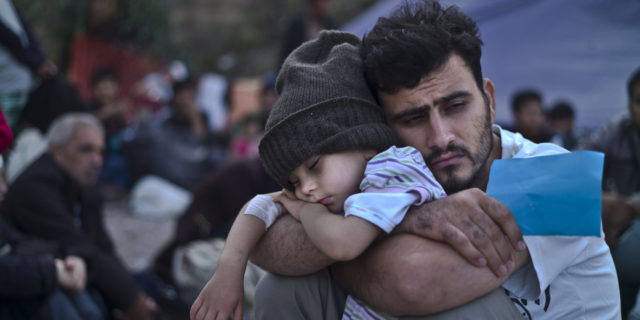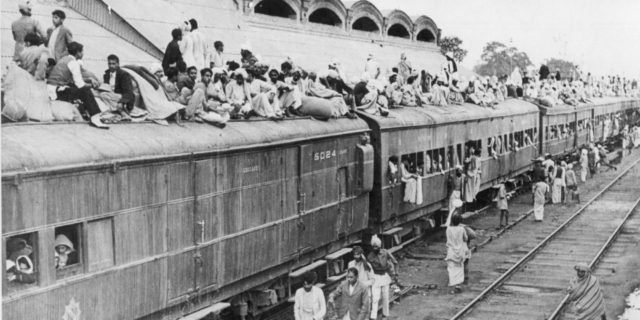By Kanika Kalra
Having grandparents who were born in Lahore, I’ve come to associate the word “refugee” with my family. I grew up listening to tales of the Indo-Pak partition.
They were narrated by a grandmother who sometimes still wakes up panting from nightmares of the bloodshed she witnessed as a child, and a grandfather who chuckles quietly whilst remembering the odd turns his life has taken since he was forced to migrate from his birthplace.
The Syrian Civil War
The subject of refugees has again become relevant in the current scenario of unrest in Syria. Since 2011, Syria has been plagued by a civil war between President Bashar Al-Assad’s government and the rebels, as well as extremist groups such as the Islamic State (IS).
Since then, about five million Syrian citizens have fled the country in order to escape the very real threats of death, torture, abduction and rape. While some have crossed over into countries that share borders with Syria, many chose to risk the illegal and perilous sea journey into Europe.
European countries are faced by a humanitarian challenge. Most countries that were initially reluctant to share their resources with the displaced have been jolted out of their apathy by horrifying stories of death and destruction.
Even so, countries like Hungary and Slovakia refuse to stand in solidarity with the rest of the EU, arguing that they do not want to live with large numbers of Muslims in their countries.
India’s Experience with Refugees
Due to the physical distance between our countries, India has not received a significant number of Syrian refugees.
However, a small group of Syrians seeking to avoid both the crowded camps in the neighbouring countries and the sea journey to Europe have chosen to take refuge in India.
There are 39 Syrian refugees and 20 asylum seekers currently registered with the United Nations High Commissioner for Refugees (UNHCR) in India.
Historically, the partition that came as a price for independence was the biggest refugee crisis. The partition for many in North India was equivalent in its trauma and impact to the First World War for Britain, or the Second World War for Japan.
Approximately 14 million people were displaced as Hindus and Sikhs moved to India and Muslims moved to Pakistan. By the end of 1950, about three million people had entered West Bengal from East Pakistan.
Since then, there have been multiple instances where India has extended its hospitality to refugees.
The Tibetan asylum seekers in the 1960s, the large influx of Bangladeshi refugees that started in 1970, the very recent displacement of Rohingyas from Myanmar, and the exodus of millions of Sri Lankans from post-civil war Sri Lanka are all examples of major human influxes that have shaped our country over the years.
What the People Think of Refugees
As history tells it, India has always been generous when it comes to taking asylum seekers under her wings.
And yet, I’ve often heard common people like us expressing apathy and even distaste towards those who come to us for help.
Be honest – have you never read a circulated WhatsApp joke about how Indian leaders are foolish to extend aid to refugees? I know I have; several times.
It is in times like these, when our humanity is challenged, that we learn a great deal about ourselves.
Even though we aren’t sending them back, how we treat refugees says a lot about us. How far are we willing to compromise in order to accommodate those who have nowhere to go?
Peace is the Answer
Perhaps the most constructive way to react to any refugee crisis is through introspection.
The root cause of their plight is conflict, lack of peace – and so, peace is what we must strive for. Empathy, and a respect for equality, freedom and human rights are at the heart of peace.
These values might seem meaningless in such extreme circumstances, but the question is: what drives people to violence? Can we make timely fixes in our society that will prevent people from using violence?
If we try hard enough, there’s nothing we can’t achieve. So, let’s eliminate violence from our speech and behaviour.
Let’s put our foot down when we witness violence or hear somebody expressing violent thoughts. Let’s try to be better. Basically, as hipster as it sounds, let’s strive towards peace.
You will also like to read:
http://edtimes.in/2016/05/isis-runs-just-like-any-other-global-organisation-with-departments-vision-mission-etc-in-place/






































